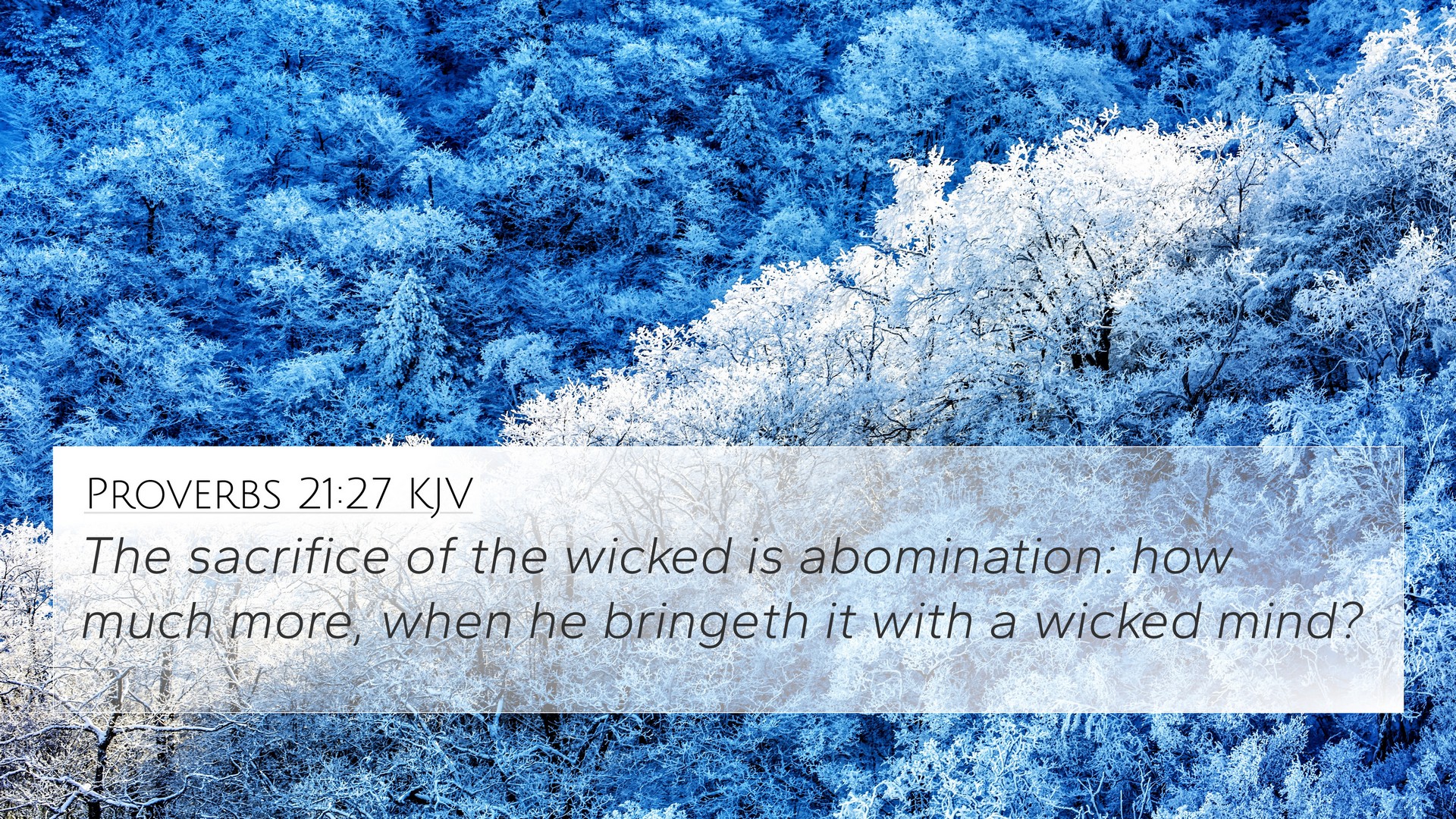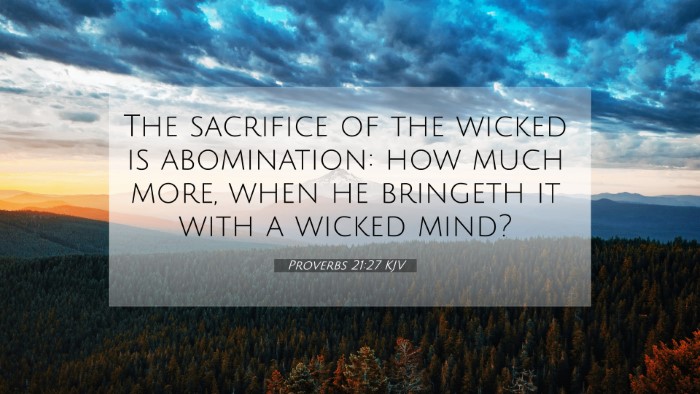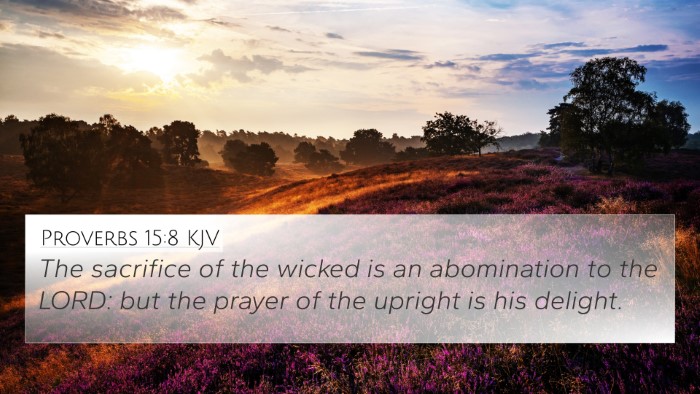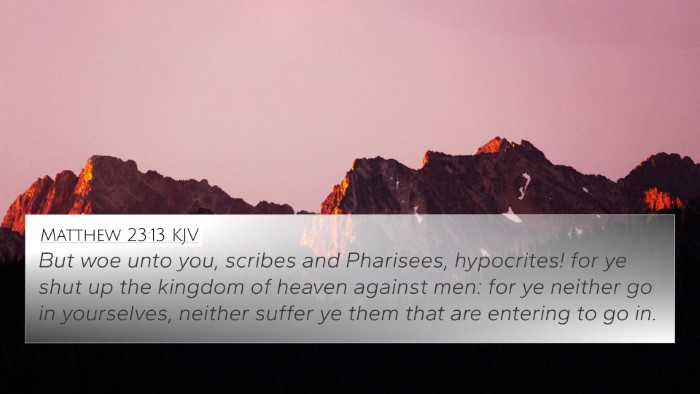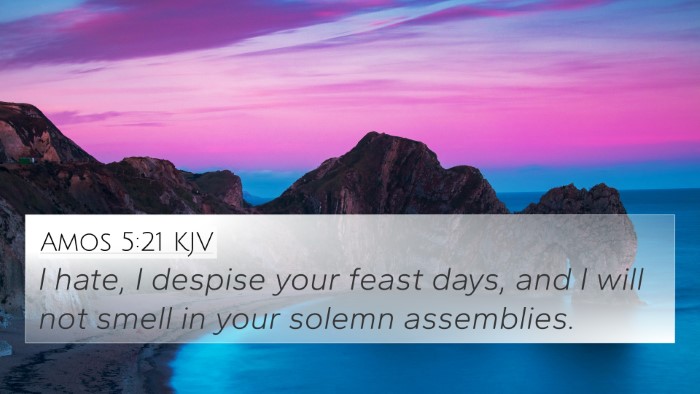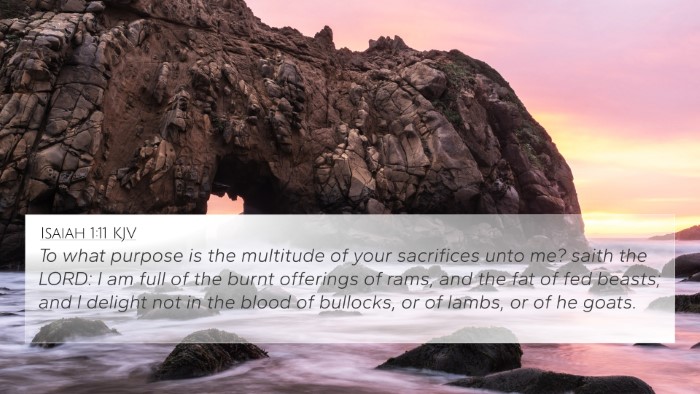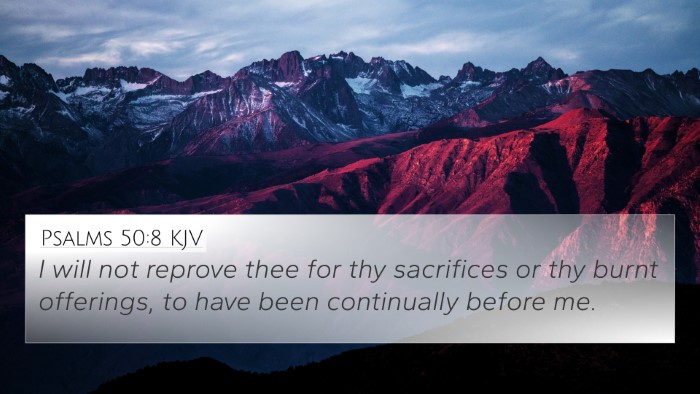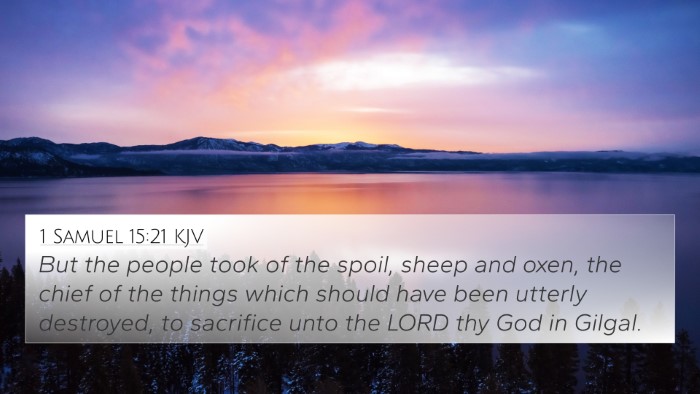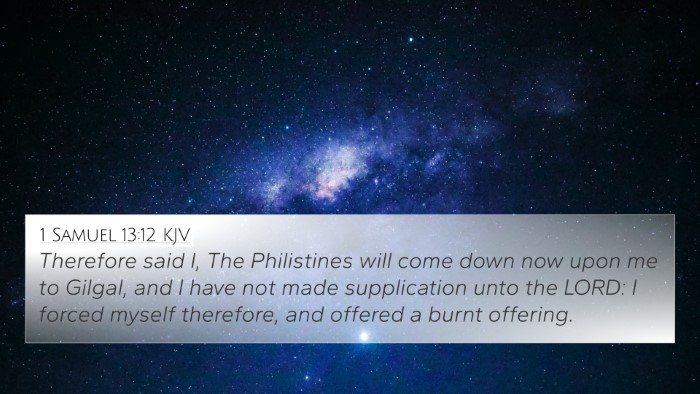Understanding Proverbs 21:27
Proverbs 21:27 states: "The sacrifice of the wicked is abomination: how much more, when he bringeth it with a wicked mind." This verse speaks to the nature of true worship and the sincerity required in one's offerings to God. Below is a comprehensive analysis of this verse, incorporating insights from public domain commentaries by Matthew Henry, Albert Barnes, and Adam Clarke.
Commentary Insights
Matthew Henry's Commentary
Henry explains that the sacrifice of the wicked is detested by God because it is not accompanied by righteousness. He emphasizes that external acts of worship are meaningless if the worshiper is not in a right standing with God. The “wicked mind” indicates that the intentions behind the acts matter as much as the acts themselves. It highlights the importance of purity in both heart and action when approaching God, suggesting that false motives render what may appear as worship utterly unacceptable in God’s sight.
Albert Barnes' Notes
Barnes elaborates on the concept that no act of worship, regardless of its physical form, can please God if the individual’s heart is corrupt. He states that the 'wicked' are those whose lives are characterized by iniquity and who offer sacrifices without a contrite heart. Barnes further proposes that this verse serves as a warning against hypocrisy, where one might perform religious duties outwardly while inwardly remaining unrepentant and ungodly. Such sacrifices are characterized as a worse form of insult to God than a careless absence of worship.
Adam Clarke's Commentary
Clarke provides a historical context to the sacrifices in ancient Israel, explaining how God’s displeasure is directed not only towards the wicked but towards their offerings as well. He indicates that a person who offers sacrifices while harboring wickedness in their heart is not merely sinning against the spirit of the law but is also intensifying their condemnation. Clarke encourages self-examination of one’s motives before making an offering, conveying that sincere worship is a matter of the heart and is central to a true relationship with God.
Cross References for Proverbs 21:27
- Isaiah 1:11-15 - God rejects empty sacrifices from a sinful people.
- Jeremiah 6:20 - God questions the value of incense from a distant land.
- Micah 6:6-8 - Rebuke of sacrificial offerings without just living.
- Psalm 51:16-17 - God desires a broken spirit and contrite heart over sacrifices.
- Matthew 5:23-24 - Emphasizing reconciliation before offering gifts at the altar.
- Matthew 15:8-9 - Worshiping God in vain due to dishonorable thoughts.
- Luke 18:10-14 - The contrast between a proud Pharisee and a humble tax collector.
- Proverbs 15:8 - The sacrifices of the wicked are an abomination to the Lord.
- 1 Samuel 15:22 - God delights more in obedience than in sacrifices.
Thematic Connections
This verse is a part of a broader theme in the Book of Proverbs emphasizing the necessity of righteousness and sincere motives in one’s actions. The relationship between one’s inner state and outward actions is crucial in understanding the expectations of God regarding worship. The thematic connections can lead to a deeper examination of how personal integrity interfaces with spiritual practices, enriching one’s overall Biblical understanding.
Connections Between Bible Verses
To effectively engage in Comparative Bible verse analysis, one must consider how various scriptures relate to the principles articulated in Proverbs 21:27. For example, examining the relationships and thematic elements between the Old and New Testament enhances one’s grasp of the unified message of scripture concerning true worship and the seriousness of one’s intent in sacrificial offerings.
Tools for Bible Cross-Referencing
Utilizing tools for Bible cross-referencing, such as a Bible concordance or cross-reference guide, can aid in identifying related verses. These resources are invaluable for conducting a cross-reference Bible study, allowing users to delve deeper into how specific passages reflect overarching themes of divine expectation, integrity, and sincerity.
Conclusion
Proverbs 21:27 serves as a powerful reminder that God seeks not only our offerings but our hearts. Recognizing the significance of intentional worship can dramatically reshape one’s spiritual life. By conducting thorough studies, cross-referencing other Biblical texts, and pursuing inter-Biblical dialogue, individuals can cultivate a richer understanding of God’s nature and expectations, thereby fostering a profound connection with Him.
